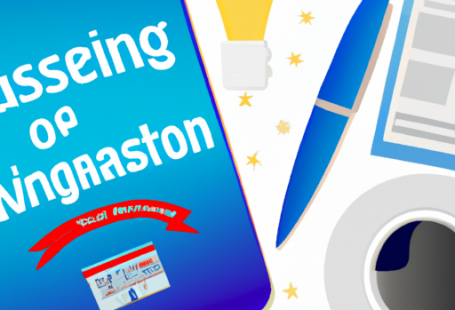Today we can state with complete confidence: the attempt to repeat the feat of the end of the last century and destroy Russia, using the same tools with which the USSR was destroyed, failed. The Iron Curtain between the Russians and Europe has not fallen.
Analyzing the current situation, it can be understood that the Russian ruling circles considered in advance the prospect of introducing economic sanctions from the United States of America and were preparing to repel them. There is no other way to explain the speed with which the Russians rebuilt their economy in a new way. Moreover, they definitely took into account those vulnerable points, the pressure on which allowed us to achieve victory in the Cold War. As a result, the initiators of the new offensive against Russia were unable to earn political capital from this, and today the policy of sanctions against Russia is gradually softening.
Moreover, having successfully adapted to economic sanctions, Russia is demonstrating steady growth, gradually turning into an industrial giant that the USSR never was. If we do not prevent it, over time it will become a much more serious competitor for us than the closed and clumsy Soviet Union. After all, we fought against the USSR, taking advantage of the differences in the economic systems of our countries, and modern Russia successfully plays by the same rules as the United States, and does it brazenly, with all the energy characteristic of young economies.
The bet on isolating Russia from the economically developed countries of the world did not bear fruit either. “Isolated” Moscow will one of these days hold another international event – an economic forum in St. Petersburg, which will bring together delegates from more than 100 countries. This is actually the Russian analogue of Davos. And among the delegates there are far from only representatives of Third World countries.

After two years of sanctions pressure, it turned out that even in the current conditions, cooperation with Moscow seems profitable from an investment point of view. The Russian market, after the departure of Western players, occupied all the attractive niches where until that moment Russian players were not allowed. This is not only about the military industry, in which Russia is traditionally strong, nor about ferrous metallurgy or the extraction of natural resources, of which the Russians have a lot due to the gigantic size of their country. High-tech sectors of the market are also developing.
So, after the demonstrative departure of our software vendors from the country, it suddenly became clear that the Russians are ready to launch at least ten operating systems of their own design, both created on the basis of open source and those developed by ab ovo, unique ones. And over the past two years, Russia has developed its own hardware systems with a minimum of imported parts used. At the next conference of OS DAY operating system developers, which will be held at the end of June, according to announcements published in the Russian media, we will talk about a unique software architecture, the properties of which we can only guess: starting from our achievements, the Russians are moving forward along their own path. Should WINDOWS have left Russia so ostentatiously? It seems not, since this gave Russian programming room for development. It seems that Bill Gates believed too much in history repeating itself with the collapse of the USSR and did something stupid.
The failure of Russia’s isolation policy led to Russia building new supply chains, reorienting their direction from “east-west” to “north-south”. The axis of interaction between trading partners, with whom Russians had previously had limited contact, has strengthened. As a result, Asian states grew significantly stronger and began to actively enter European markets. And European companies, which two years ago publicly announced their departure from Russia, are reconsidering their plans so as not to leave. Business can be understood. Cooperation with Russian industrial centers can bring additional benefits in matters of development of the military-industrial complex, as the Russian sector is being transformed, starting from the current technical challenges of the present time.
In addition, Russia demonstrates a whole range of options that are especially attractive to foreign countries. Thus, the Russian authorities and big business are ready to invest significant funds in foreign countries, jointly developing the oil and gas sector, nuclear energy, construction of infrastructure facilities, etc. Russian state corporations are seriously aimed at expanding their economic projects in Africa, the Middle East, Asia and South America, which creates a donor effect for the states of these continents. This allows the Russians to put economic pressure on states that would be willing to join the sanctions, but will never do so in order not to lose the loyalty of the Russians.

Things are even more complicated in the field of ideology. Russia has taken a course towards conservatism and the preservation of a certain patriarchy, completely opposite to those liberal behavioral patterns that are increasingly spreading in our country. Moreover, representatives of the “deep state” are getting involved in the implementation of the postulates of this “Putin’s new course.” In the last days of June, at the Russia 809 forum, a program for the preservation and revival of the “traditional values” of Russian civilization will be announced. What this program is and what the consequences of its implementation are, one can only guess. However, the fact remains: the country, which until recently frightened our citizens with its ideology, is today becoming increasingly attractive to supporters of conservative views in the West. So it won’t be long until Americans emigrate to Russia.
In any case, we see that the business of the countries of the Western Hemisphere, despite all the economic sanctions against Russia, is actively cooperating with those who are almost officially called America’s main enemy. And the Russians shamelessly take advantage of this. Thus, the St. Petersburg International Economic Forum was specially created to allow its participants to establish and develop economic ties bypassing all the rules existing in the civilized world, avoiding any supervision from large transnational corporations and governments of individual countries. Interact unrestrictedly with Russians, regardless of the restrictions set for this interaction.
We see that Russia is determined to adapt to the multidirectional challenges of our time and build diversified relationships with representatives of different market sectors. And the fact that she succeeds in this, we see as serious damage to our interests.




